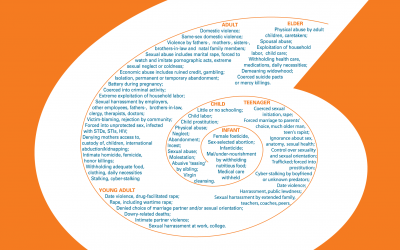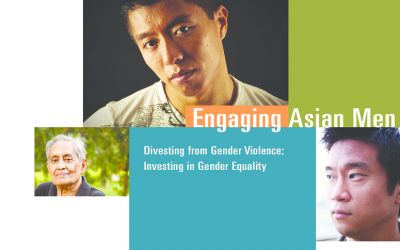The notions and strategies of colonial domination are used by patriarchy to continue male dominance over women. We need to counter claims that colonization has led to violence against women, by pointing out that there is in fact a tight connection between colonization and patriarchy. Some would even say that you could not have colonization without patriarchy. The institutions of colonization rely on political power, access to resources, and strategies of oppression. Patriarchy and colonization go hand in hand and it is this nexus that keeps the structures of gender violence so well entrenched.
Most activists do not excuse male violence because of colonization; although the men in our communities use this argument in their own defense: because they cannot, or will not, or feel threatened about, taking responsibility for their violence against women. So, they resort to blaming the white colonizers. We must not allow that analysis to dominate and resist the ways our own communities force us to silence, hurt, oppress, and disrespect the voices of women. It is up to us to ensure that women’s suffering, struggles, and strengths are not dishonored.
Related Resources
Lifetime Spiral of Gender Violence
The Lifetime Spiral reveals patterns of victimization by enumerating the types of violence, vulnerabilities, and harms women and girls face.
Engendering Change: Transforming Gender Roles in Asian & Pacific Islander Communities, 2007
This report asks and analyzes some critical questions, forcing us to take a hard look at all the factors that have to come together to effect transformation.
Lifecourse Experiences of Intimate Partner Violence and Help-Seeking among Filipina, Indian, and Pakistani Women, 2010
IPV often recurs over the lifecourse and survivors’ decisions to seek help are shaped by their history of positive and negative experiences of help-seeking, and because their preferred and actual sources of help change over time. Using the Life History Calendar to interview 143 Filipina, Indian and Pakistani domestic violence survivors, this research enhances our understanding of help-seeking over the lifecourse and makes recommendations for system responses to domestic violence in Asian communities.
Engaging Asian Men: Divesting from Gender Violence; Investing in Gender Equality, 2013
What will it take for men in our Asian communities to divest from gender violence and invest in gender equality?
Culture: What It Is, Who Owns It, Claims It, Changes It, 2002
By Sujata Warrier
Culture does not reveal stable patterns, but dynamic ones where experiences and commonalities continually re-shape it.
Cultural Defenses in the Criminal Legal System, 2002
By Leti Volpp
How leveraging cultural stereotypes in court plays into already existing negative depictions of culture.
What Does Cultural Competency Mean and Why Should I Care? 2007
By Sujata Warrier
Use these training slides to enhance understanding of culture and cultural competency in domestic violence agencies.
Gender and Culture in Transition: A Community Conversation: Report on Domestic Violence Forum with the Fresno Hmong Community, 2014
By Central California Asian Pacific Women.
Advocates and community members from Fresno convened to examine domestic violence within the context of gender equity and how it impacts Fresno’s Hmong community. Participants identified steps that communities and systems can take to raise awareness, improve service for survivors, and redefine gender values and practices.


